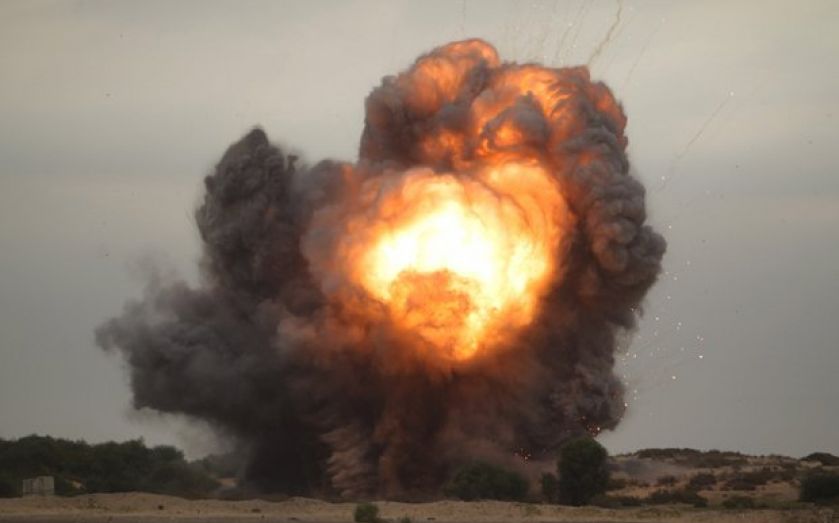World Economic Forum: The biggest global risks are interstate conflict and extreme weather

As tensions between Russia and Ukraine simmer, and the Islamic State reaches ever scarier heights of prominence, interstate conflict has topped the World Economic Forum (WEF) list of the biggest risks facing humanity.
The global risks report has been published ahead of the WEF's annual Davos summit – where world leaders, economic heavyweights and respected academics to debate the biggest global issues.
It marks the first time inter-state conflict has topped the list of global threats in the surveys ten year history. Growing disillusionment with the benefits of globalisation is making foreign policy more self-interested while slow economic growth and job creation is fuelling nationalist sentiment.
"Twenty-five years after the fall of the Berlin Wall, the world again faces the risk of major conflict between states," said Margareta Drzeniek-Hanouz lead economist at the World Economic Forum.
"However, today the means to wage such conflict, whether through cyber attack, competition for resources or sanctions and other economic tools is broader than ever," she said.
But the worrying rating does shed some light on the World Economic Forum's outlook for global growth, which economic issues taking the top two of the top three spots in last year's ranking.
Wealth inequality, or the widening gap between rich and poor, was named as the world's biggest risk. The report said that while
Structural unemployment – where deep-set inefficiencies mean high jobless rates stick even after an economy returns to growth – was singled out as the second biggest risk. Young people were deemed "especially vulnerable" as youth unemployment rates soared to 50 per cent in some countries.
Fast forward a year and "the global economy is returning to growth albeit sluggishly" according to the report. Despite the slowing Eurozone, concerns over the size of China's debt and the outlook for emerging markets more broadly it says progress has been made in reducing the likelihood of another global meltdown.
But the report recognised governments and central banks could appear to have more control than they actually do. It warned that time and time again history shows people do not always learn from their mistakes and old risks often take them by surprise.
Top ten global risks in terms of likelihood:
- Interstate conflict
- Extreme weather events
- Failure of national governance
- State collapse or crisis
- Unemployment or underemployment
- Natural catastrophes
- Failure of climate-change adaptation
- Water crises
- Data fraud or theft
- Cyber attacks
Top ten global risks in terms of impact
- Water crises.
- Spread of infectious diseases.
- Weapons of mass destruction.
- Interstate conflict.
- Failure of climate-change adaptation.
- Energy price shock.
- Critical information infrastructure breakdown.
- Fiscal crises.
- Unemployment or underemployment.
- Biodiversity loss and ecosystem collapse.